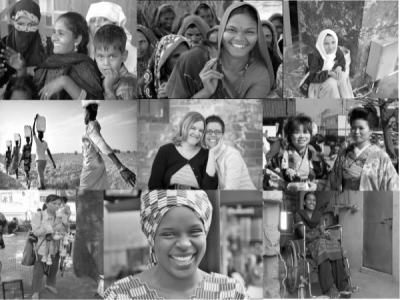 It’s difficult to make it in the city. It’s doubly difficult to be a British Pakistani trying to make it in the city. Whilst racial discrimination and differences in educational qualifications may have a part to play in this, they certainly aren’t the only culprits. Cultural differences, and the difficulties faced by members of ethnic minorities in assimilating, are at least equally potent.
It’s difficult to make it in the city. It’s doubly difficult to be a British Pakistani trying to make it in the city. Whilst racial discrimination and differences in educational qualifications may have a part to play in this, they certainly aren’t the only culprits. Cultural differences, and the difficulties faced by members of ethnic minorities in assimilating, are at least equally potent.
In recent weeks there have been endless expressions of alarm at the “Islamisation” of schools in Birmingham as part of the “Trojan Horse” plot. However, the discussion seems to have focused solely on the implications for the affected children. What seems to be wholly missing is any attempt to contextualise the insular mind-set, manifested by the Trojan Horse plot, within a broader pattern of cultural tension. Nor has there been discussion of the setbacks such attitudes may already have caused.
A report published in 2006 showed that of the five largest ethnic minority groups in Britain, Pakistani women were worst off with their average earnings estimated to be 28 per cent lower than White men’s. This gap is more than double that experienced by Caribbean and Indian women. Such statistics suggest that the pay gap can’t be attributed wholly to racial discrimination. Further, the educational attainment of girls from ethnic minorities, including that of Pakistani girls, has increased considerably in recent years. This indicates that the explanation for the difficulties faced by Pakistani women can’t be distilled down to poorer qualifications.
The other where people seem to have been everywhere, except that troubled corner of the world made (in)famous by the War on Terror – Pakistan. One where religion is becoming increasingly important. The other where any suggestion that you pray evokes uncomfortable shifting in chairs. Neither one is correct. It’s the mix that is difficult.
So there is something more, or at least equally, potent as race and education affecting how women from certain ethnic minorities fare in the job market. In my opinion, this something is the “dual” or “parallel” lives that many members of minority communities live. Often the first trigger point within such communities is leaving school. Whilst the popularity of the practice may be declining, in the minds of many, daughters are best off married as soon as they leave school. For those that escape this fate, and go on to university, their choice of institutions will often be restricted to options which allow them to live at home. It will be appreciated that such choices don’t necessarily translate into the best option in terms of advancing career prospects.
For the relatively few that somehow surpass these hurdles and make it to the City, the transition is not necessarily an easy one. Whilst there are undoubtedly some who have done it well, I am sure there are many like myself who become disillusioned by the difficulty of reconciling the two worlds. And they really are two worlds. One where Pakistan is still the ultimate holiday destination. The other where people seem to have been everywhere, except that troubled corner of the world made (in)famous by the War on Terror – Pakistan. One where religion is becoming increasingly important. The other where any suggestion that you pray evokes uncomfortable shifting in chairs. Neither one is correct. It’s the mix that is difficult.
Both have the same effect: preventing those affected from assimilating, developing a sense of belonging and flourishing as people. As we’ve all heard at some point, admitting is the first step to solving a problem.
All of this becomes all the more confusing when no amount of compromise is enough. It’s difficult to be Pakistani enough or British enough. What emerges instead is, a species in limbo, hanging precariously between the two defined identities. The situation is all the more complicated because there are different shades of grey along the spectrum between the camps, but no two shades seem to match. Everyone’s Pakistani to British ratio seems to be different, so it becomes difficult to find people you identify with. The alternative is to conform to the norms of one group, which would compromise an important part of who you are, or to go it alone. With all this to juggle, if you place a stressful, high demand career into the mix, it creates a recipe for mental chaos. But the benchmark by which performance is measured does not shift to account for the added pressures.
Such structural barriers, to the success of women from ethnic minorities, are no less deserving of attention than the threat posed by the segregation uncovered in the schools of Birmingham. Both have the same effect: preventing those affected from assimilating, developing a sense of belonging and flourishing as people. As we’ve all heard at some point, admitting is the first step to solving a problem.
Now is a good time for those facing such barriers to come out and join the discussion. It is only by raising the profile of this issue, and discussing it openly and honestly, that we can move towards developing a solution. What better time than now?






